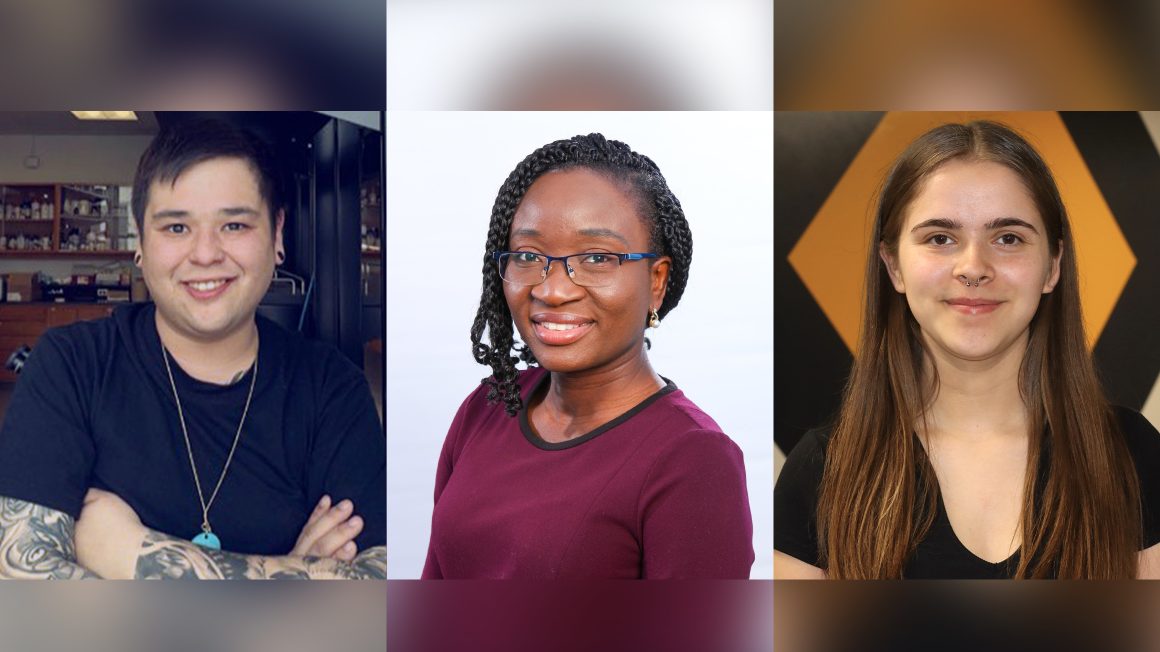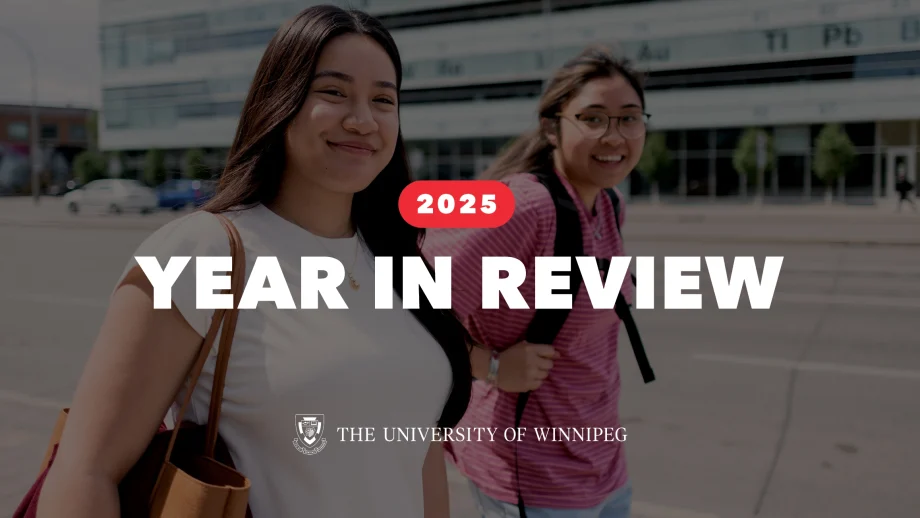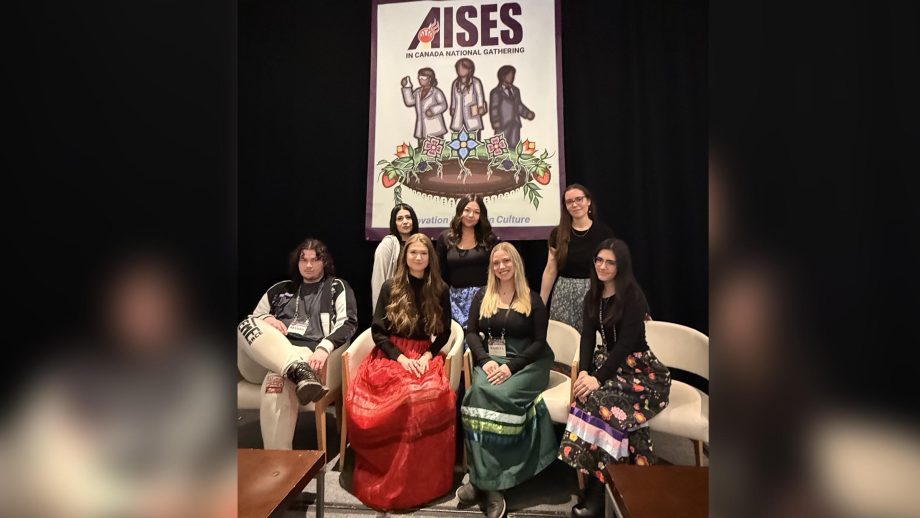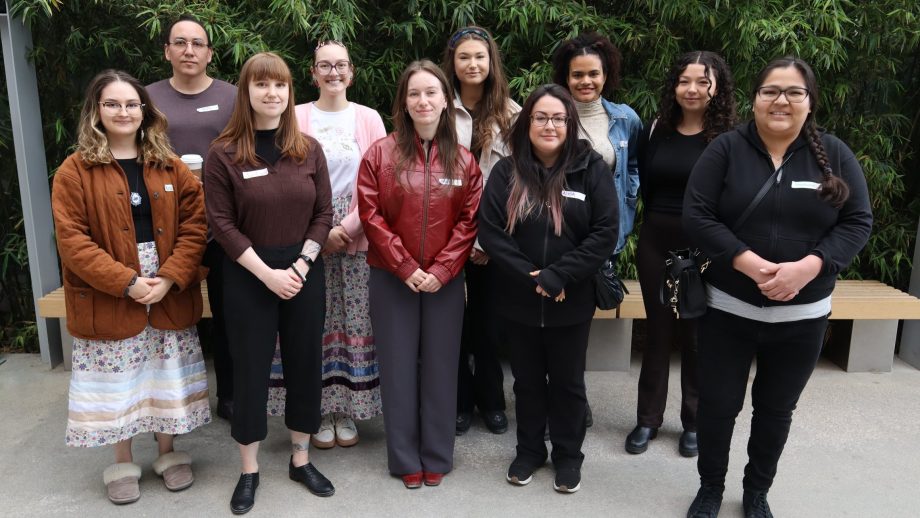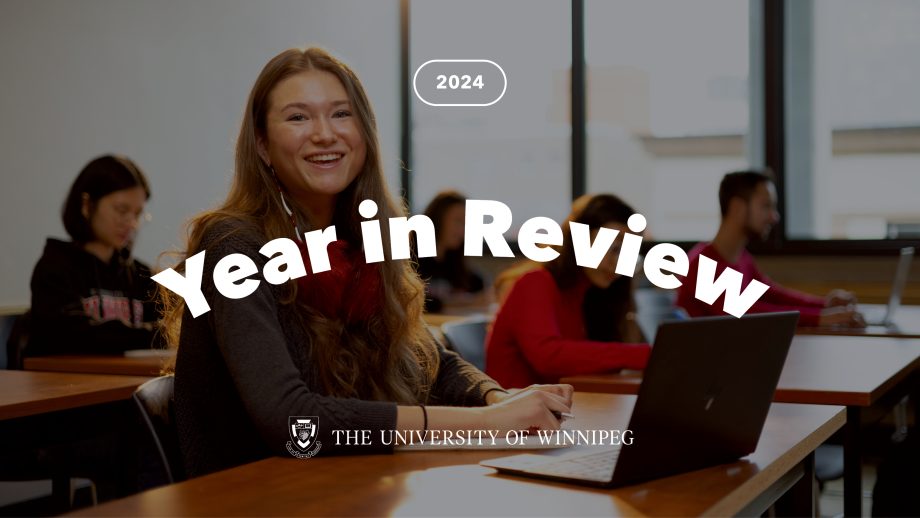In May, Victoria Gordan Pagard, a second-year University of Winnipeg student, took part in the Pathway to Graduate Studies (P2GS) program. This four-week research program helped the biology student explore new avenues in the sciences.
“I had no experience in applied computer science whatsoever,” Gordan Pagard said. “It’s something I had no idea I was going to love as much as I did. I’m probably going to be taking some applied computer science classes now.”
It gives great opportunities to students who may not otherwise do something like this.
Victoria Gordan Pagard
Gordan Pagard said she was initially daunted by the idea of research, but P2GS gave her a starting point.
“It’s given me a lot to think about,” she said. “I’m thinking of possibly switching to Honours now because it just got me thinking about grad school.”
Thanks to three years of new funding for P2GS from the Government of Canada’s PromoScience program, more Indigenous students, like Gordan Pagard, will get the chance to conduct research at UWinnipeg.
Pathway to Graduate Studies is a free program that provides STEM research opportunities for Indigenous students at UWinnipeg. The intent of the program is to introduce students to research opportunities, encourage them to continue with their undergraduate programs, and prompt them to consider graduate studies.
“UWinnipeg expresses gratitude to the PromoScience program for this funding,” said Dr. Chantal Fiola, Associate Vice-President, Indigenous Engagement. “It will help many more Indigenous students gain hands-on experience with research, and, hopefully, be inspired to pursue a career in STEM.”
From student to instructor
Corey Sanderson (BSc 19, BA 21) was a participant in P2GS while he was a student at UWinnipeg. This year, he was invited back to the program as an instructor.
“I was very excited and very honored to come back in this capacity, and to be able to reshare with students,” he said. “It was just a full circle moment and I felt very proud.”
Sanderson said his experience in P2GS as a student helped him decide to pursue a master’s degree in biological science. It also helped inspire him toward a career working with Indigenous students.
“That UWinnipeg is really taking our cultures and values and integrating into these programs, I think it is just a beautiful job,” he said. “Being out on the land as an Indigenous person, I really enjoyed it because I had that connection to the land and water. It didn’t feel like a classroom.”
It’s not just students who are benefiting from P2GS. Dr. Mary Adedayo, Assistant Professor in the Department of Applied Computer Science, mentored Gordan Pagard in May. It was Dr. Adedayo’s first time participating in P2GS, and she said she really appreciated the program’s cultural activities.
“I think that’s something that generally, especially in sciences, we just sort of ignore,” Dr. Adedayo said. “We don’t really pay attention to people connecting to their background or connecting with other people. Understanding past experiences that may either be traumatic, or that may influence people’s choices in terms of how they do research, that was something that was quite interesting for me.”
Both Dr. Adedayo and Gordan Pagard say they would participate in P2GS again, and they’re grateful for this new funding that will help others have similar opportunities.
“I’m excited to see where the program goes,” Gordan Pagard said. “I think it’s important because it gives great opportunities to students who may not otherwise do something like this.”

